So you want to become a beekeeper…
That’s great.
But there are a number of things to consider before you start. Below we hope to guide you through some of these issues and at the end we have a more detailed advice document for you to download and read.
This is a basic guide of course. We have a number of events to help you decide whether you want to become a beekeeper that we would suggest you consider attending before you decide to spend money on bees and/or equipment. These courses and events include our Beginners Course, our ‘What is Beekeeping’ session and our Taster Days.
To become a beekeeper we would recommend:
You are clear on the time and cost commitments
You get some training, ideally by attending a Beginners course
You get the minimum equipment necessary and only then
£500
is a reasonable amount to expect to spend when starting beekeeping - on equipment.
A beginners course and the bees will be extra.
Time: See below but weekly from April to July you need to inspect weekly
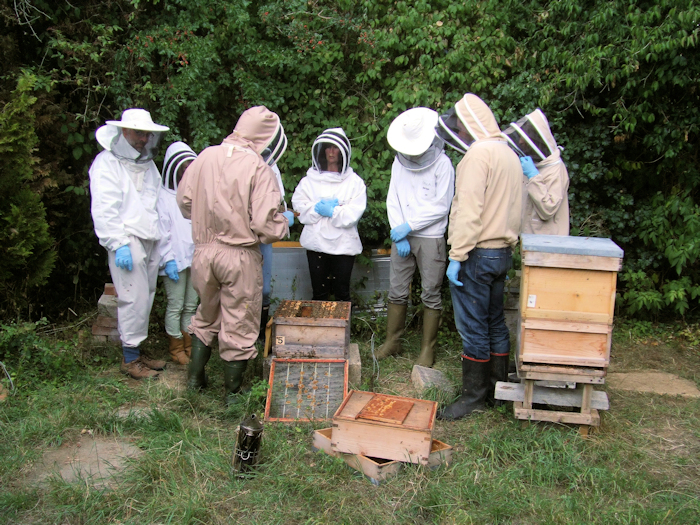
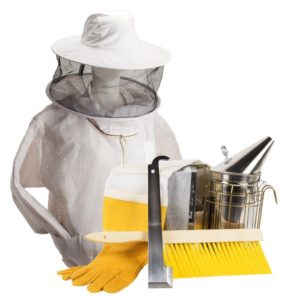
do you get your bees!
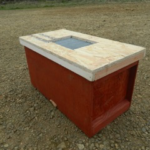
Let's break this down:
Let’s start with the ‘big’ commitments of time and money:
Time
Hive inspections are not optional. From late April until sometime in July (i.e. during the swarming season) you have to inspect colonies at weekly intervals. Where weekly means every 7 days and not 9, 10, 12........
Hive inspections involve heavy lifting (if you’re lucky) and possibly getting stung.
Don't take up beekeeping if you cannot allocate this time, at these times, to your hobby.
Costs
You will need somewhere to keep your bees - a hive! They can be made from wood (cedar is considered best) or polystyrene. You might get a second hand one from a retiring beekeeper or a number of the equipment vendors do low cost ‘bees on a budget’ hives. And ideally you will have 2 hives. A bees on a budget hive is about £160.
Equipment:
You’ll need
a beesuit (£50 - £100’s),
a smoker (£15 - £80),
a hive tool (£6 - £15)
wellington boots and gloves (marigolds are fine)
and that’s it!
Seriously, that’s all you really need to start beekeeping. Yes, there are hundreds of tools, gadgets, devices that you could buy (and probably will if you keep bees for a number of years) but to start beekeeping this is all you need.
Oh, and you’ll need bees.
You could set up a ‘bait hive’ to attract a passing swarm and get bees for free but we wouldn’t recommend that as a beginner.
You might be able to buy a nuc (nucleus, essentially a mini or starter hive) of bees from someone at your local association and there are plenty of bee farmers who sell nucs (£200+).
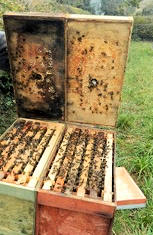
Two nucs with BIAS - Brood In All Stages
Training
We've saved the most important bit to last!
People do get all the equipment, get their bees, start beekeeping and then go on a Beginners' course.
We would strongly recommend that you go on a course before you get your bees; indeed before you spend any monies as actually handling the bees and seeing in some detail what is involved might make you reconsider whether beekeeping is really for you.
Just about every beekeeping organisation will run a Beginners Beekeeping course (COVID-19 permitting) so the very first thing you should do when considering becoming a beekeeper is to join a local beekeeping association. Once you have done your Beginners course you will find the the members a source of help and support especially through the first 2-3 years of beekeeping, generally thought to be the most challenging.
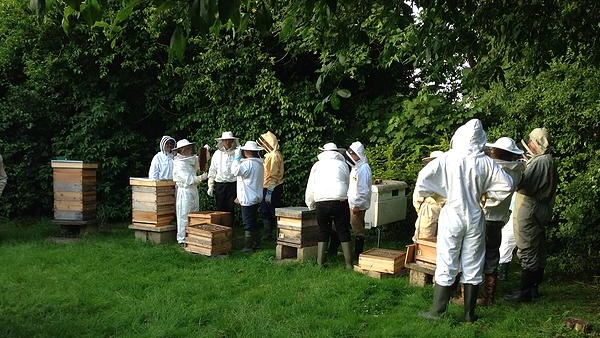
OBKA Beginners course in action
We hope you have found this short guide useful.
We have produced a much more detailed guide that you can download by clicking on the link below: